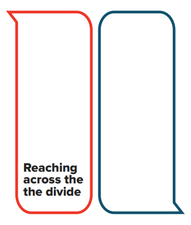 Partisan polarization has reached an all-time high. Almost two-thirds of Americans find it stressful to talk about politics with someone who identifies with another political party. But to solve the most significant problems—and to have a healthy democracy—we must be able to discuss the issues, policies, and values that matter. The purpose of this guide is to help prepare you to speak about what is most important to you in ways that can be heard, and to hear others’ concerns and passions with new empathy and understanding—even and especially if you continue to disagree. Interested in learning more about EP's approach? Consider registering for an Essential Partners workshop or contact us for a free consultation. Download
0 Comments
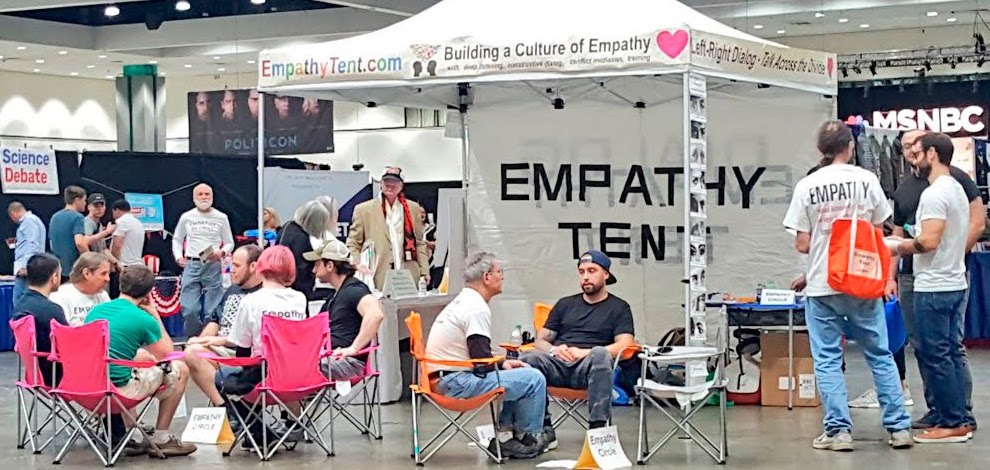 An Empathy Circle is a structured dialogue process that effectively supports meaningful and constructive dialogue. The basic process can be fairly easily learned in about 15 minutes and it is a lifelong practice to deepen. An Empathy Circle increases mutual understanding and connection by ensuring that each person feels fully heard to their satisfaction. The practice is the most effective gateway practice for learning, practicing and deepening listening and empathy skills, as well as, nurturing an empathic way of being. 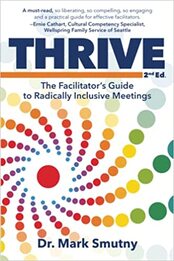 Submitted by: Mark Smutny Imagine meetings where everyone is heard and all people matter. Picture organizations that embrace all voices and are committed to justice, equity and opportunity. Imagine businesses, nonprofits and the public sector creatively engaging people in thousands of ways—seeking their best ideas, empowering the silenced, and building communities where all are treated with dignity and respect. That’s what Thrive seeks to create. Each chapter contains practical insights and accessible stories that transform meetings from dull to dynamic. You will learn how to: • capitalize on diversity’s strengths. • keep meetings task-oriented and collegial. • facilitate effectively in polarized or conflicted settings. Thrive includes chapters on privilege and power, multilingual and virtual meetings, and full inclusion of people with disabilities. Whether you are a skilled practitioner or new to leadership, Thrive will teach you techniques for facilitating more effective, inclusive and energizing meetings. About the Author - Dr. Mark Smutny is a professional facilitator, DEI consultant, speaker, author and founder of Civic Reinventions, Inc. He is known for helping organizations uncover the wisdom hidden in their diversity, build cohesion, and achieve their goals. He draws upon decades of work planning and leading retreats, facilitating meetings, and working with nonprofits and businesses. https://www.amazon.com/Thrive-Facilitators-Radically-Inclusive-Meetings/dp/1945847484?tag=tarrale-20&geniuslink=true NCDD’s October 2010 Resource Guide on Public Engagement showcases the National Coalition for Dialogue & Deliberation’s best collaboratively-created products (like the Core Principles for Public Engagement and the Engagement Streams Framework), as well as recognizing and directing you to a lot of the great work on public engagement that has been done by others in our field.
Created for our 2010 regional events (all attendees received a copy), this must-have guidebook was developed to share stories and resources with the dialogue and deliberation community, public managers, and anyone else with an interest in public engagement. 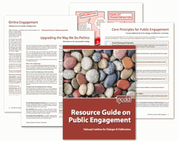 NCDD’s October 2010 Resource Guide on Public Engagement showcases the National Coalition for Dialogue & Deliberation’s best collaboratively-created products (like the Core Principles for Public Engagement and the Engagement Streams Framework), as well as recognizing and directing you to a lot of the great work on public engagement that has been done by others in our field. Created for our 2010 regional events (all attendees received a copy), this must-have guidebook was developed to share stories and resources with the dialogue and deliberation community, public managers, and anyone else with an interest in public engagement. Here’s how the Engaging Cities blog described the Resource Guide: It’s a small compendium full of valuable knowledge on all facets of public engagement. Not only does the guide contain a directory of valuable resources, points of contact, and case studies of collaborations that work, but it also contains some of the more exciting results of last year’s conferences. Items such as the ‘Core Principles for Public Engagement’ remind us of how far we’ve come, the commonality of our goals and how much more we have yet to achieve. The brief ‘Online Engagement’ section of the manual is a fantastic introduction and database of resources, including Public Agenda’s Promising Practices to Online Engagement that we helped write. And the ‘Upgrading the Way We Do Politics’ portion of the manual addresses common issues found when politics and public engagement intersect. Handling the material in a constructive manner, NCDD provides helpful tips and positive suggestions for improvement. Extremely informative, the ‘Engagement Streams’ matrix ties common goals of public engagement to strategies that complement those goals in proven ways while also showcasing key features that will help in achieving that goal. The matrix is invaluable for anyone involved in public outreach. In fact, the entire manual is invaluable for anyone involved in public outreach and engagement. Resource Link: NCDD Resource Guide
The Public Engagement Principles (PEP) Project was launched in mid-February 2009 to create clarity in our field about what we consider to be the fundamental components of quality public engagement, and to support President Obama’s January 21, 2009 memorandum on open government. The following principles were developed collaboratively by members and leaders of NCDD, IAP2 (the International Association of Public Participation), the Co-Intelligence Institute, and many others.
Enjoy this interactive DebateGraph of the principles! Click on a principle to see the additional text on what the principle looks like in practice, and what to avoid. This 17-page document from the Transportation Research Board, Committee on Public Involvement in Transportation (1999) is an adaptable and practical guide which produces output in a ‘scorecard’ format. It is intended to provide the practitioner with a means of conducting a self-assessment of the effectiveness of a specific public involvement campaign for a specific planning or project development activity (e.g., the development of a long range plan or a specific capital improvement). It is not intended to evaluate the overall public involvement processes or procedures guiding all public involvement activities such as a State department of transportation or Metropolitan Planning Organization would develop under ISTEA regulations. Download here from the NCDD site (no longer available at trbpi.com).
|
Categories
All
|
Follow Us
ABOUT NCDD
NCDD is a community and coalition of individuals and organizations who bring people together to discuss, decide and collaborate on today's toughest issues.
© The National Coalition For Dialogue And Deliberation, Inc. All rights reserved.
© The National Coalition For Dialogue And Deliberation, Inc. All rights reserved.

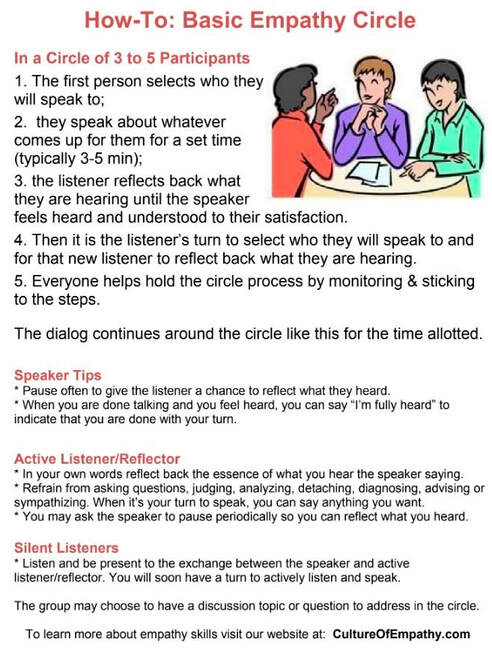
 RSS Feed
RSS Feed